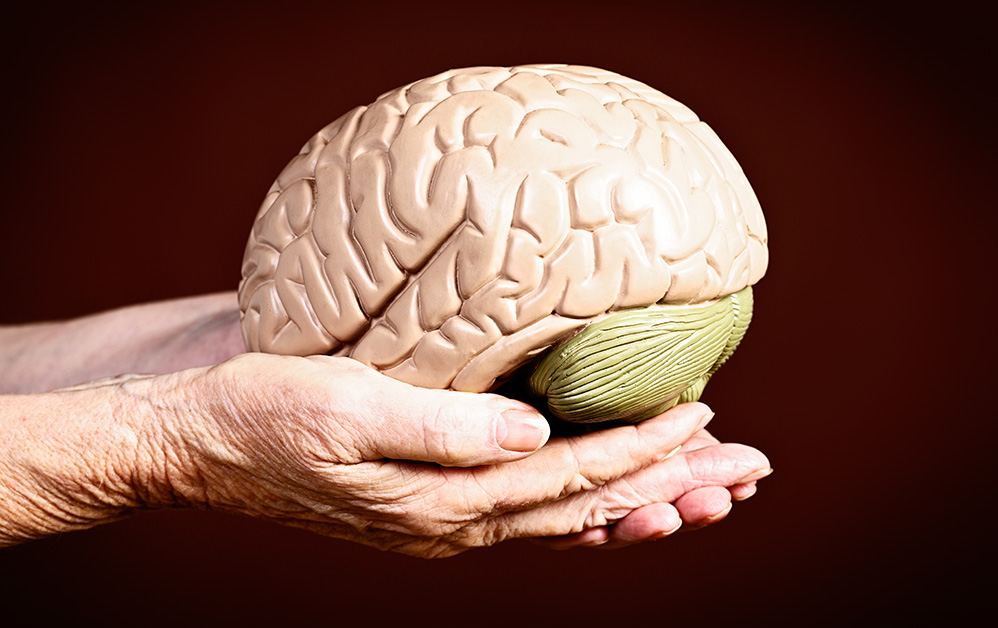How the Brain Changes with Age

Throughout our lives, our bodies are constantly changing – and that includes our brains. Maybe you’ve already noticed differences in yourself or your aging loved ones, such as occasional forgetfulness or “senior moments.” What’s considered normal as we get older, and how can we maintain our cognitive abilities for as long as possible?
Physical changes in the brain
The brain is an amazing organ, and we have yet to fully understand how it works. We do know, however, that certain physical changes happen over time:
- Some areas of the brain, including the hippocampus and frontal lobe, start shrinking around age 65. These are the parts involved in higher cognition and memory.
- Communication between neurons – the cells that send and receive information – slows down, which affects the brain’s ability to retrieve memories and store new ones.
- Chemical messengers in the brain (such as dopamine and serotonin) decrease.
- There may be less blood flow to the brain.
These changes may sound discouraging, but there’s good news, too:
- Different areas of the brain start working harder to compensate for its physical changes.
Nerve cells forge new connections to make up for the cells that die. - Our brains are flexible and resilient enough to adjust after physical or emotional challenges.
- We learn things, adapt to new tasks and make memories well into our golden years.
- Older adults are better than younger people at making rational decisions and screening out negativity. As we age, we benefit from our wealth of knowledge and life experience.
So, while you might have more difficulty remembering where you put your keys, learning new tasks or doing multiple things at once, this doesn’t mean you’re developing Alzheimer’s disease or another type of dementia. If these changes are a normal part of aging, which ones are a cause for concern?
Symptoms of dementia
Dementia is the term for a group of symptoms that can happen when brain cells become damaged. There are many causes of dementia . Alzheimer’s disease is the most common, responsible for about 60% to 80% of cases. It is a progressive disorder that causes irreversible changes to the brain, affecting how people think, feel, communicate and behave. It mainly affects seniors, but it is not a normal part of aging.
Warning signs of dementia include:
- Memory loss that interferes with daily life
- Challenges in planning or problem-solving
- Difficulties completing familiar tasks
- Confusion
- Trouble understanding visual images or spatial relationships
- Problems with speaking or writing words
- Misplacing items and losing the ability to retrace steps
- Decreased or poor judgment
- Withdrawal from work or social activities
- Changes in mood and personality
There is not yet a cure for Alzheimer’s disease, but early diagnosis and treatment can improve response to medication. If you are concerned about changes that you have noticed in yourself or a loved one, talk to your physician. (Read more about dementia .)
Keeping your brain healthy
How can you help your brain stay in good shape? Research suggests that the following strategies slow down age-related cognitive decline; several of them also help protect against risk factors for Alzheimer’s disease.
- Exercising regularly
- Eating a healthy diet
- Getting enough sleep
- Managing stress
- Being socially active
- Engaging in mentally stimulating activities
- Controlling blood pressure and cholesterol
- Avoiding obesity
- Managing diabetes
- Keeping alcohol intake low
- Avoiding smoking and other forms of tobacco
Many of these aspects of a healthy lifestyle benefit both body and brain. Altering life-long habits can be challenging; start with small steps and acknowledge that change doesn’t happen overnight.
Dementia is a life-changing diagnosis that can be stressful for individuals and their families. Learn about Bayshore Home Health’s personalized Dementia Care Services.
Additional resources
- How memory and thinking ability change with age
(HEALTHbeat, Harvard Medical School) - How to Change Unhealthy Habits (Psychology Today)
- Alzheimer Society of Canada
- Canada’s Food Guides
- Canadian Physical Activity Guidelines for Older Adults
- Stress (Canadian Mental Health Association)
